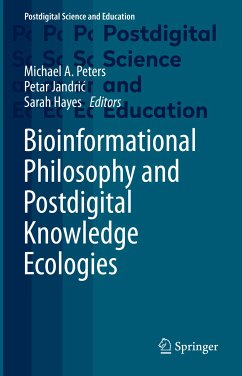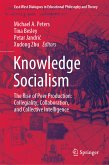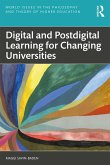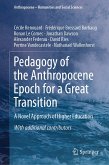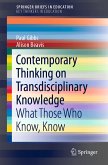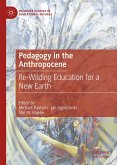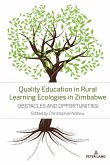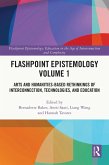The book presents a cross-disciplinary overview of critical issues at the intersections of biology and information science. Based on theories of bioinformationalism, viral modernity, the postdigital condition, and others, this book explores two inter-related questions: Which new knowledge ecologies are emerging? Which philosophies and research approaches do they require?
The book argues that the 20th century focus on machinery needs replaced, at least partially, by a focus on a better understanding of living systems and their interactions with technology at all scales - from viruses, through human beings, to Earth's ecosystem. This change of direction cannot be made by simple relocation of focus and/or funding from one discipline to another. In our age of the Anthropocene, (human and planetary) biology cannot be thought of without (digital) technology. Today's curious bioinformational mix of blurred and messy relationships between physics and biology,old and new media, humanism and posthumanism, knowledge capitalism and bio-informational capitalism defines the postdigital condition and creates new knowledge ecologies.
The book presents scholarly research defining new knowledge ecologies built upon emerging forms of scientific communication, big data deluge, or opacity of algorithmic operations. Many of these developments can be approached using the concept of viral modernity, which applies to viral technologies, codes and ecosystems in information, publishing, education, and emerging knowledge (journal) systems. It is within these overlapping theories and contexts, that this book explores new bioinformational philosophies and postdigital knowledge ecologies.
Dieser Download kann aus rechtlichen Gründen nur mit Rechnungsadresse in A, B, BG, CY, CZ, D, DK, EW, E, FIN, F, GR, HR, H, IRL, I, LT, L, LR, M, NL, PL, P, R, S, SLO, SK ausgeliefert werden.
Hinweis: Dieser Artikel kann nur an eine deutsche Lieferadresse ausgeliefert werden.

